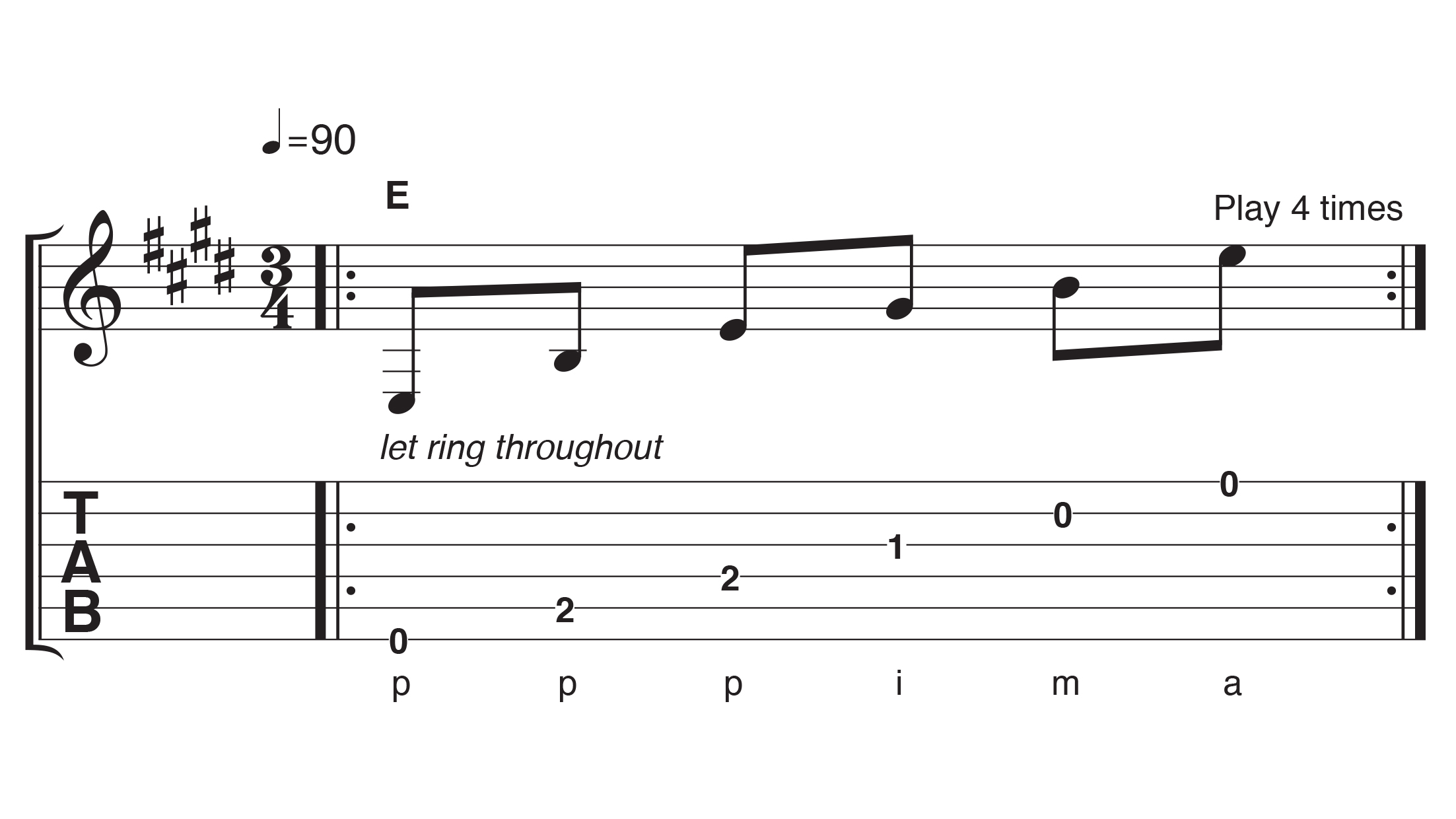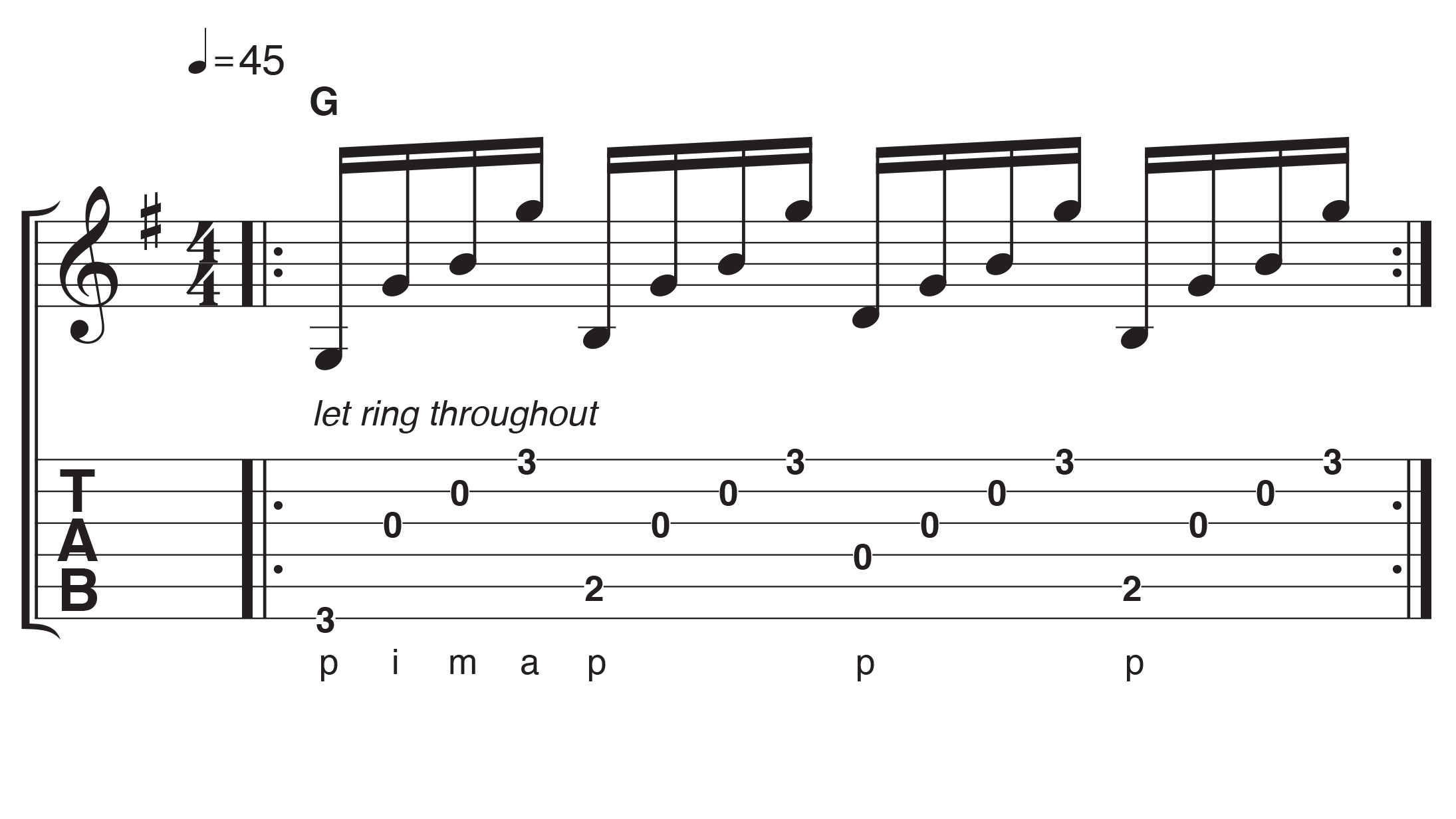Ditch the pick and start fingerstyle today with three guitar chords and this lesson
Fingerpicking fundamentals
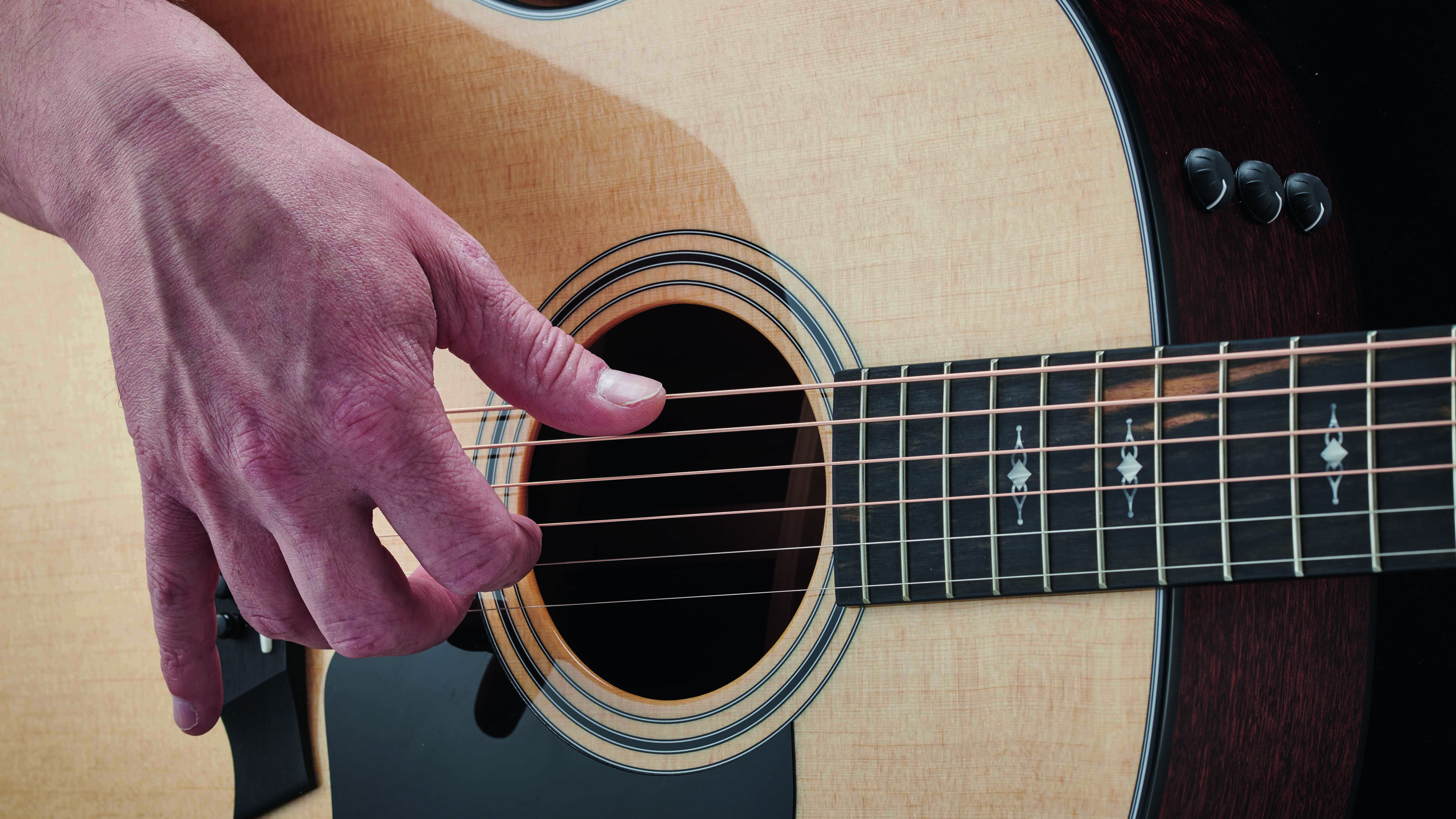
Want all the hottest music and gear news, reviews, deals, features and more, direct to your inbox? Sign up here.
You are now subscribed
Your newsletter sign-up was successful
Whether you’re a regular fingerstyle player or it’s a technique you’ve never tried, we always recommend paying attention to the basics. This short lesson shows you the best ways to approach fingerpicking, but with one vital caveat – these are general 'rules' that you'll often find yourself breaking when you play.
Still, get these fundamentals down and you'll be covered for a multitude of playing situations.
Basic technique
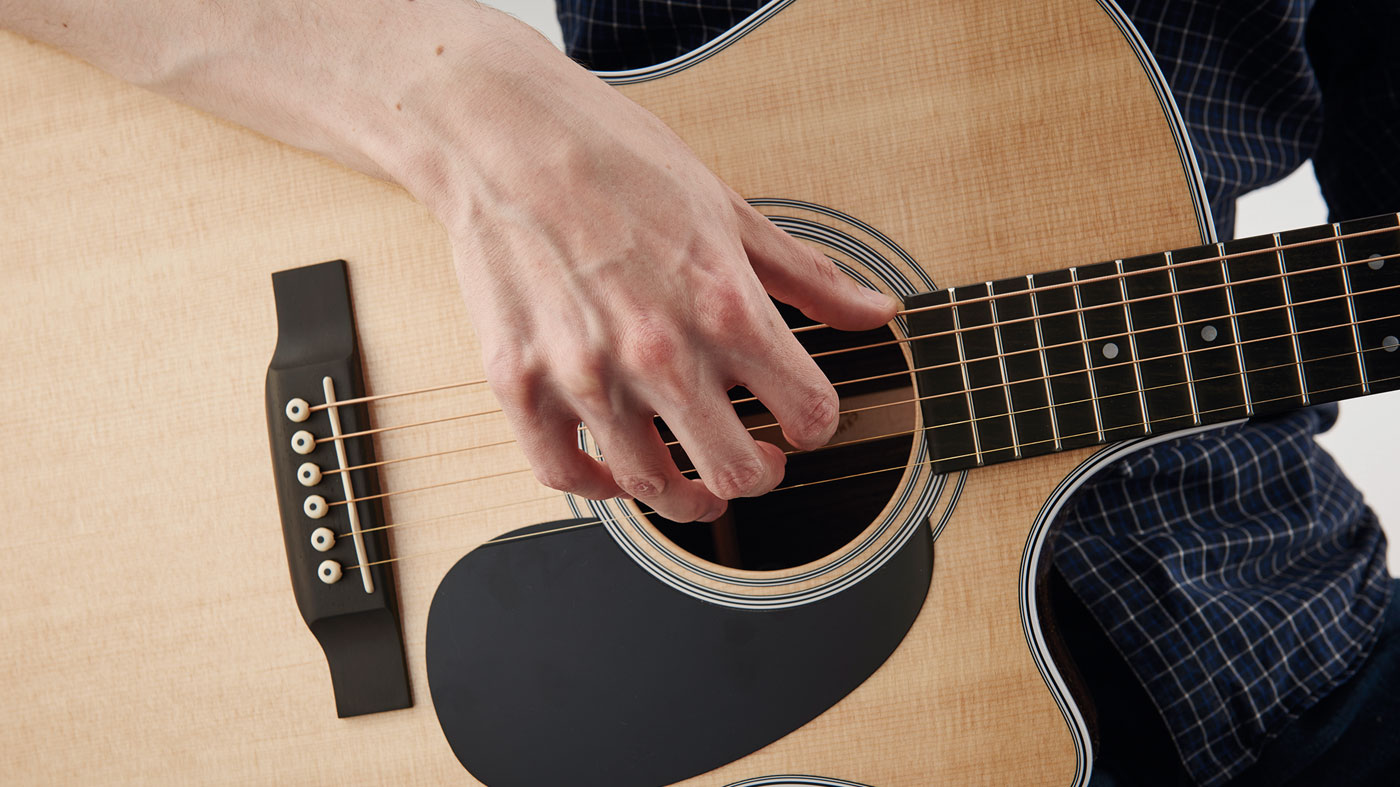
Standard fingerstyle technique is to use your thumb for all three bass strings, while your first, second and third fingers take one treble string each.
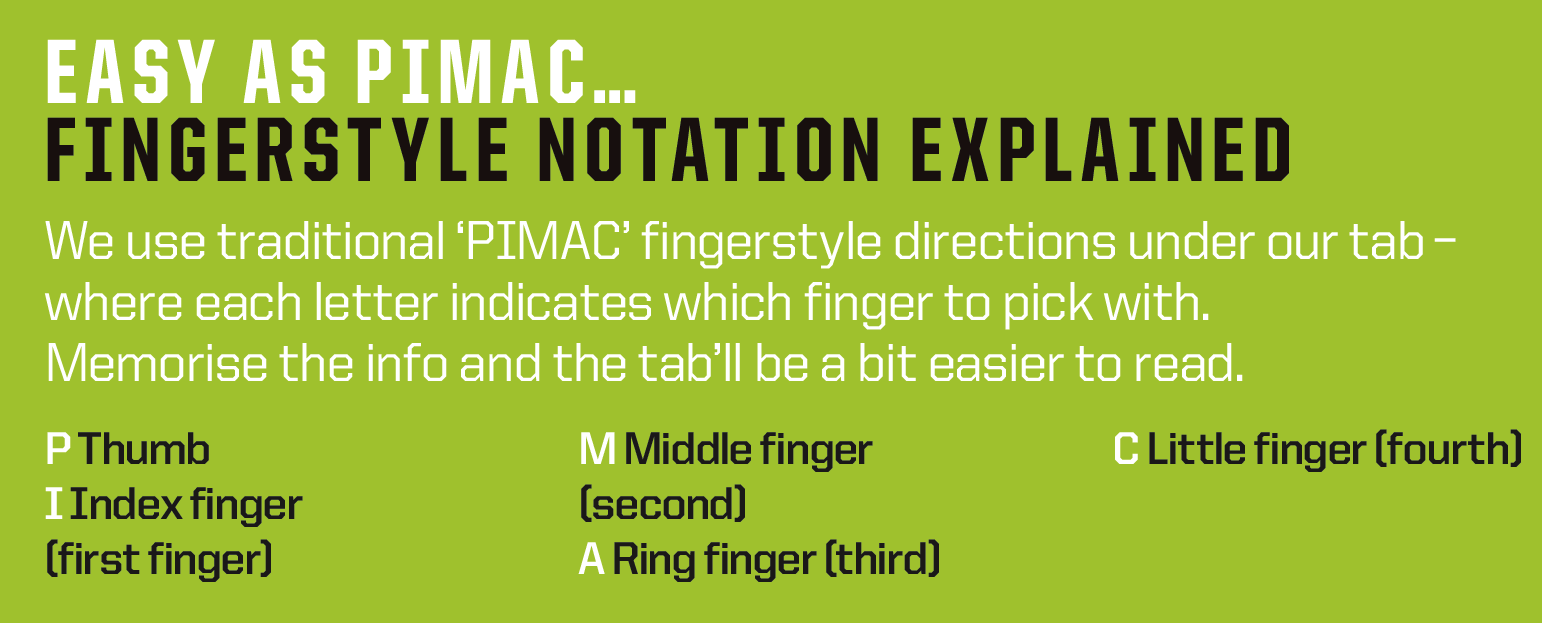
1. Take it easy
This open E arpeggio is a great way to practise. Play three downstrokes with your thumb, then pick up with your first, second and third fingers.
2. Gee'd up
With the E chord under your belt try this exercise with G. There’s more thumb movement here, so make sure to practise slowly until you get a feel for it.
3. Ay up!
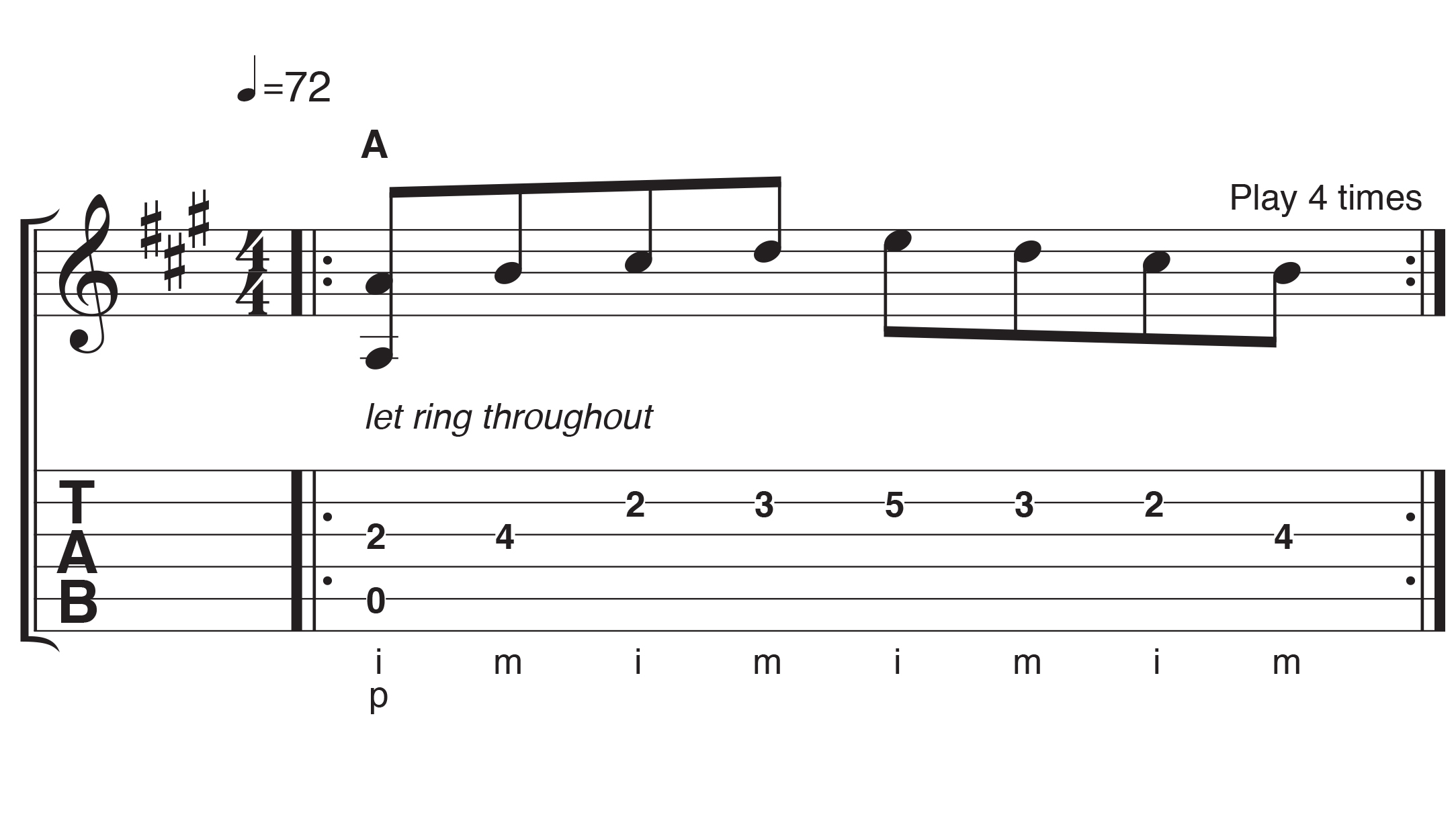
Don’t worry too much about the bass note – aim to play the treble-string tune. Alternate between your ‘i’ and ‘m’ fingers, but be ready to vary your pattern too.
Melodic fingerpicking tip
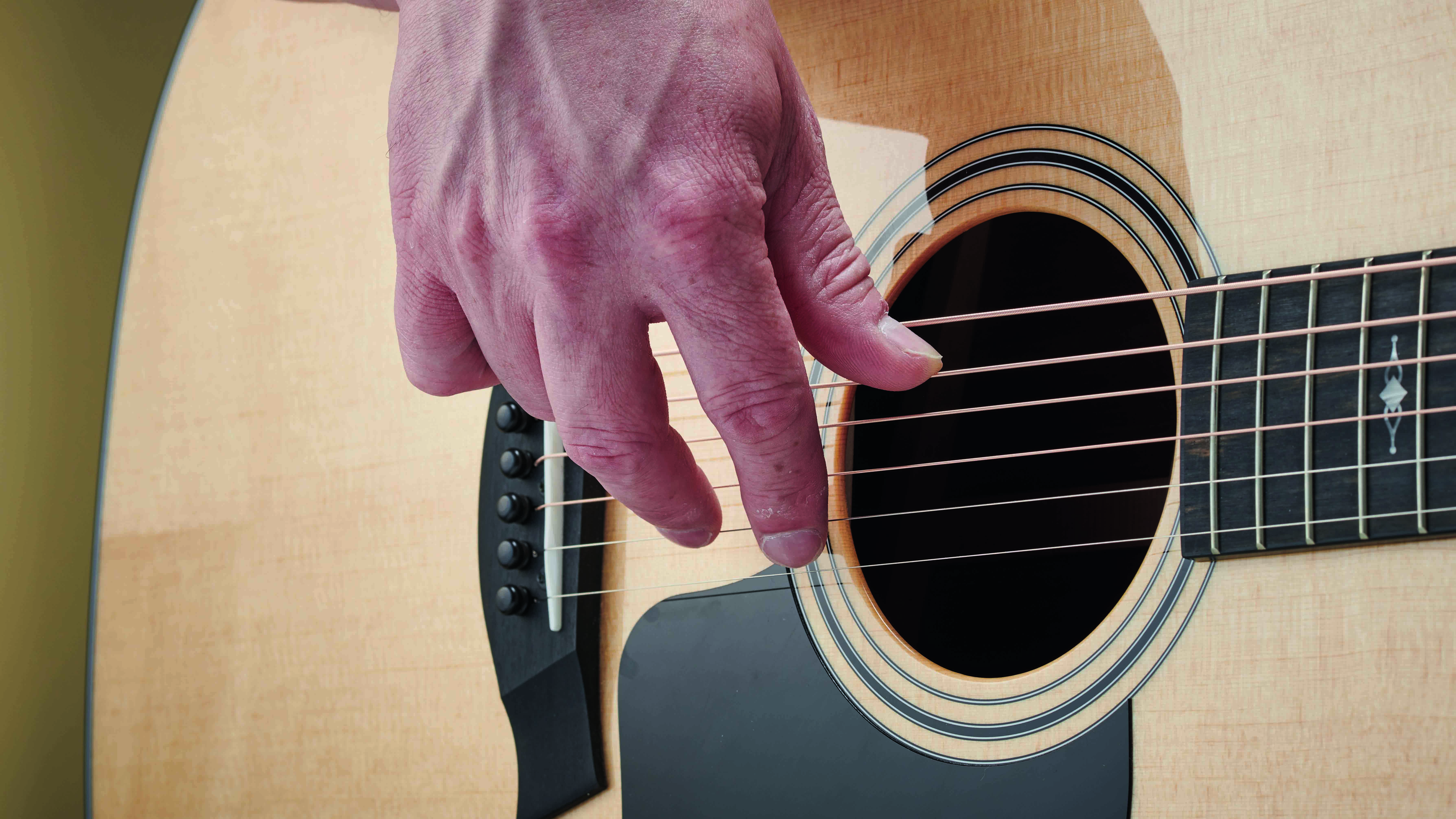
Single-note melodies have a different sound to arpeggios - and this picking approach is ideal: rest your thumb on a bass string to hold your picking hand in place as your first, second and – occasionally – third fingers outline a melody.
Want all the hottest music and gear news, reviews, deals, features and more, direct to your inbox? Sign up here.
Guitar Skills: Better acoustic fingerpicking in 20 minutes
Total Guitar is Europe's best-selling guitar magazine.
Every month we feature interviews with the biggest names and hottest new acts in guitar land, plus Guest Lessons from the stars.
Finally, our Rocked & Rated section is the place to go for reviews, round-ups and help setting up your guitars and gear.
Subscribe: http://bit.ly/totalguitar
